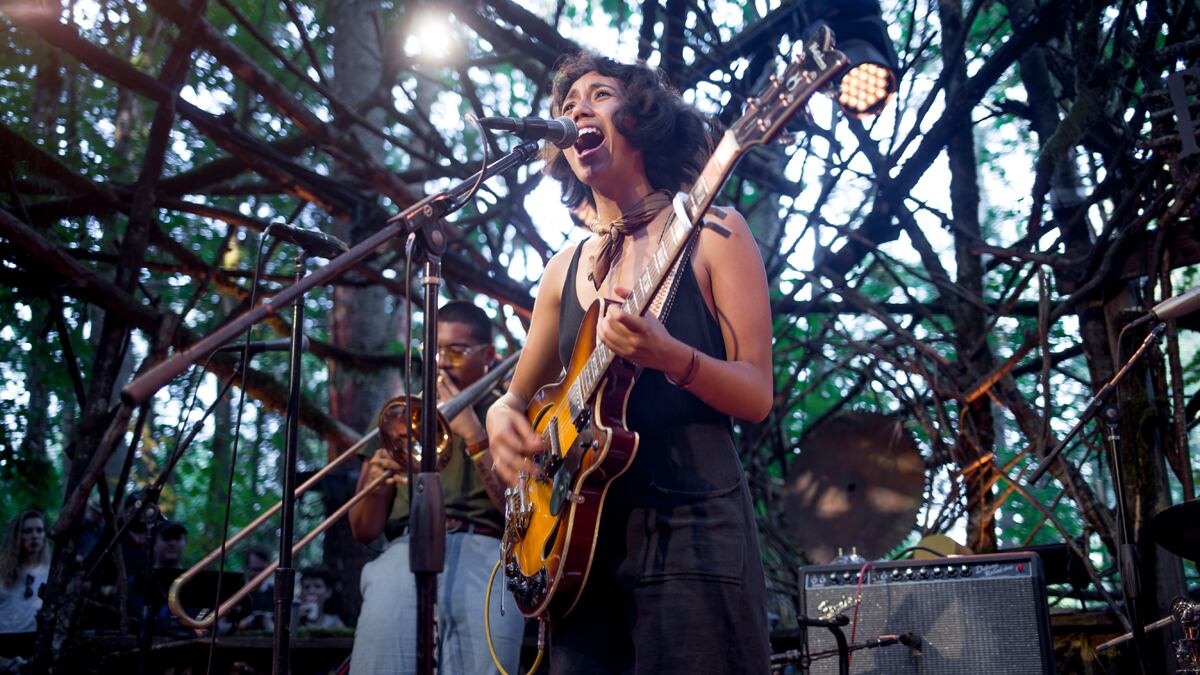Are you ready to save Pickathon? Organizers of the countryside music festival say its fate might hinge on fans making an early journey this year to Clackamas County—not to Pendarvis Farm, but to Happy Valley City Hall.
The Happy Valley Planning Commission will decide at a Feb. 27 public hearing whether the festival is granted a conditional use permit, or—to put it more plainly—whether the festival will keep going.
For the past 18 years, Pickathon’s been held on Pendarvis Farm, an 80-acre property used for weddings and events, located in Happy Valley. Since 2014, the festival’s operated under a conditional use permit, which expired at the end of last year. Now, Pickathon founder and CEO Zale Schoenborn is seeking a new permit for another 10 years.
However, Happy Valley isn’t the same place it was a decade ago. The city has kicked off a massive amount of expansion, including a growing city center, more housing, and plans to build a community center on the city-owned land the festival currently leases as a guest parking lot.
There’s also the noise level—some neighbors don’t love it, while others wait for the festival all year.
“We’re trying to bring together the locals [to] make sure we’re in tune in terms of making this a valuable part of the city,” Schoenborn says. “We’ve gotten great support from city council and managers.”
But, there are technicalities at play. The public notice regarding the upcoming hearing reads, “Despite the importance of other issues or concerns, the Planning Commission’s decision is required to be based on whether the evidence shows the application complies with the applicable criteria.” That criteria lives in the nuts and bolts of Title 16, specifically around the conditional use criteria, standards and conditions of approval (see 16.64.040).
“These are very technical meetings about conditions of approval,” Schoenhorn says. “Those could be not compatible with having a festival.”
The city council isn’t tipping its hand. “We look forward to the opportunity [to] review the Pickathon conditional use permit,” says Happy Valley planning manager Laura Terway. “As in years past, the Planning Commission will consider the application including the site layout and operating conditions, public testimony, and government agency recommendations to determine if the festival is appropriate and identify opportunities to address concerns.”
Leading up to the vote, Happy Valley’s Planning Commission has received more than 1,500 written testimonials from supporters all over, far outweighing the few letters sent in opposition.
“It’s humbling, that level of support,” Schoenborn says. “I feel like a lot of that comes from being really transparent. We’re pretty vulnerable in this. It either happens and we continue, or it doesn’t and we don’t.”
While the commission is still technically accepting written testimonials, Schoenborn says the best way to help Pickathon’s chances is to be in the room at 6 pm Tuesday, Feb. 27, at Happy Valley City Hall (if you can’t make it in person, there’s also the option to attend virtually through the link in the agenda once it’s released).
“We don’t want to have folks signing up for testimony—I think that would be bad for us [if] 100 people sign up to speak,” Schoenborn says. “The best thing is [seeing] a show of hands of all of those folks that hopefully show up. It’s a coordinated sign of support. That would have an impact, I think.”
If the permit is granted, Pickathon plans to release its first batch of “celebration” weekend passes at 9 am Feb. 29. Additionally, each pass will come with a vinyl record of the upcoming limited-edition live at Pickathon series, while supplies last. But before that, if Pickathon does secure the 10-year permit, the first step is walking across the street to toast pints at Valley Public House.
“We’re planning everything optimistically, but you can’t take everything for granted,” Schoenborn says. “We’ve done everything we can to be positively affecting it the universe, so we’ll see what happens.”
